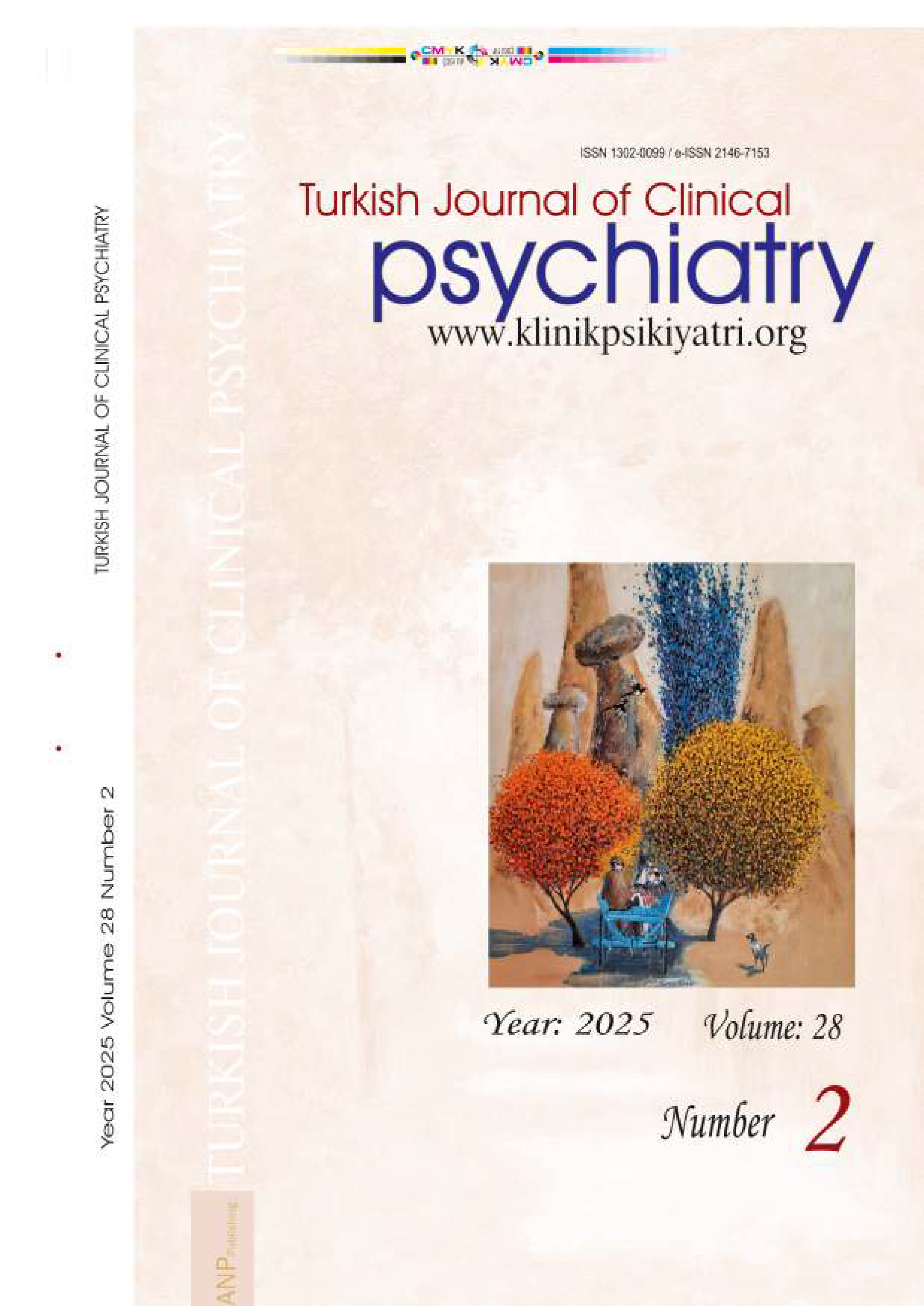





Theory of mind and metacognitive functions in patients with fibromyalgia syndrome
Filiz Özsoy1, Sevil Okan21Tokat State Hospital, Mental Health And İllnesses2Tokat State Hospital, Physical Medicine And Rehabilitation
INTRODUCTION: Object: We aim to evaluate the metacognitive functions and theories of mind of patients with fibromyalgia syndrome.
METHODS: Method: The study was carried out in the Physical Therapy and Rehabilitation outpatient clinic with 101 women with fibromyalgia syndrome and 101 healty control group. All attendees; clinical data form, Fibromyalgia Impact Questionnaire (FIQ), Beck Anxiety Scale (BAS), Beck Depression Scale (BDS), Reading the Mind in the Eyes Test and Metacognitions Questionnaire Forms (MCI) were applied.
RESULTS: Results: The eyes test performance of the Fibromyalgia patient group was statistically significantly lower than the control group. Together, it was detected that the patients had more dysfunctional metacognition and that the 'uncontrollability and danger' and 'cognitive trust' metacognition were more frequently used. The BAI and BDI scores of the patients were also higher than the controls. Reading the Mind in the Eyes Test had no correlation with other scales. But BAO; there was moderate correlation between the MCI total score and the 'control inability and danger' subscala. The BDI correlated poorly with the 'cognitive trust', 'uncontrollability-danger' and 'need for control of thinking' subscales of MCQ.
DISCUSSION AND CONCLUSION: Conclusion: Dysfunctional metacognitions were high in FMS patients and a different mind theory in some parameters. More studies should be done to reveal the anxiety, depression levels and cognitive distortions of patients with fibromyalgia.
Fibromiyalji sendromu tanılı hastalarda zihin kuramı ve üst biliş işlevleri (tur)
Filiz Özsoy1, Sevil Okan21Tokat Devlet Hastanesi, Ruh Sağlığı Ve Hastalıkları2Tokat Devlet Hastanesi, Fiziksel Tıp Ve Rehabilitasyon
GİRİŞ ve AMAÇ: Amaç: Fibromiyalji (FMS) tanılı hastaların üst biliş işlevleri ve zihin kuramlarını değerlendirmeyi amaçlıyoruz.
YÖNTEM ve GEREÇLER: Çalışmaya; Fiziksel Tıp ve rehabilitasyon polikliniğinde FMS tanısı konan 101 hasta ve 101 sağlıklı kontrol alınmıştır. Tüm katılımcılara; klinik veri değerlendirme formu, Fibromiyalji Etki Anketi, Beck Anksiyete Ölçeği (BAÖ), Beck Depresyon Ölçeği (BDÖ), Gözlerden Zihin Okuma Ölçeği (GZO) ve Üst biliş-30 (ÜBÖ) formları uygulandı.
BULGULAR: FMS hastalarının sağlıklı kontrollere göre gözler testi performansı düşüktü. Beraberinde hastaların daha fazla işlevsel olmayan üst bilişlere sahip oldukları ve ‘kontrol edilemezlik ve tehlike’ ve ‘bilişsel güven’ üst bilişinin daha fazla kullanıldığı saptandı. Hastaların BAÖ ve BDÖ puanları da kontrollerden yüksek olarak bulundu. Gözlerden zihin okuma testinin diğer ölçeklerle korelasyonu yoktu. Fakat BAÖ; ÜBÖ toplam puanı ve ‘kontrol edilmezlik ve tehlike’ alt boyutu ile orta derecede bir korelasyon gösterdi. BDÖ ise ÜBÖ ‘bilişsel güven’, ‘kontrol edilmezlik-tehlike’ ve ‘düşünceleri kontrol ihtiyacı’ alt boyutları ile zayıf bir korelasyon gösterdi.
TARTIŞMA ve SONUÇ: Sonuç: FMS hastalarının daha fazla işlevsel olmayan üst bilişlere ve bazı parametrelerde farklı bir zihin kuramı işleyişine sahip oldukları görüldü. Fibromiyalji tanılı hastaların, anksiyete, depresyon düzeyleri ve bilişsel çarpıtmalarını ortaya koyabilmek için daha fazla çalışmalar yapılmalıdır.
Manuscript Language: Turkish
(2711 downloaded)










